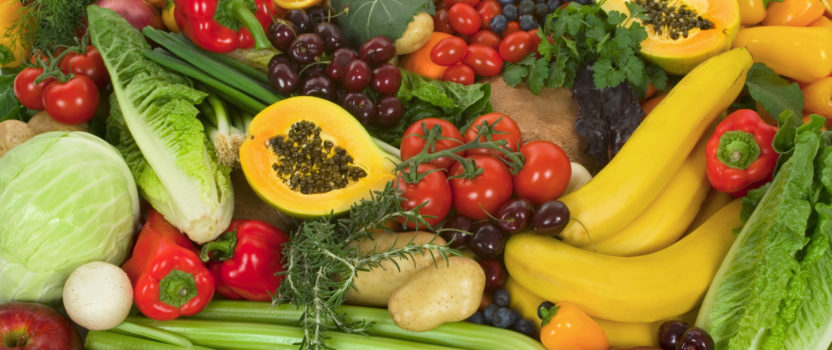The Benefits of a Plant-based diet
You’ve heard the term plant-based, but are you confused about what it really means? Is it the same thing as being a vegan or a vegetarian? Is it a raw food, squirrel-like diet in which you have to get by on just nuts and seeds?
I’m here to separate the myth from the facts and tell you why you should lead a more plant-based lifestyle.
What do you eat on a plant-based diet?
Quite simply – a plant-based way of eating focuses on consuming plant-derived whole foods that are unrefined and minimally processed. This means pure, unadulterated ingredients that are in their original form and as close to nature as possible.
Whole grains, fruits, vegetables, nuts, seeds, tubers, and legumes are the dietary staples. These are full of vitamins, minerals, antioxidants, and phytochemicals and provide an abundance of nutrients for your body. Following a plant-based lifestyle doesn’t necessarily mean fully avoiding animal products like a vegan or vegetarian. For plant-based eaters, animal proteins can happily fit into the lifestyle, yet they serve as more of a supporting role to your veggies and whole grains.
Vegan vs. plant-based
Technically, a vegan doesn’t consume any animal products including meat, eggs, milk, dairy, and honey. For some vegans, the primary reason for leading a vegan lifestyle is related to ethics and animal welfare. Yet, a vegan diet is not always as nutritionally virtuous and as clean as a plant-based lifestyle – it can and often does include processed ‘fake’meats and junk food such as chips or French fries.
The vegan focus is usually set on avoiding animal products, but the priority is not placed on unprocessed plant-based whole foods. A huge concern for many when contemplating a plant-based lifestyle is whether eating in this manner is balanced and nutritious. Of course the answer is YES!
But it’s important to be mindful and considerate of the foods that you’re eating. It’s key to make sure that you are consuming a colourful and diversified diet in order to optimize your nutrition.
Protein
Where to get your protein is often the major concern for individuals considering a plant-based way of life. Beans, nuts, seeds, and whole grains are all plant-based sources of protein that are also filled with vitamins, minerals, and fibre. Protein needs vary from person to person depending on your age, health status and amount of physical activity. Despite common misconceptions, satisfying your protein needs from a plant-based diet is simple and achievable.
The health benefits
One of the main reasons to start following a plant-based diet is for the health benefits. Now, more than ever, research is showing how altering your eating habits can positively affect your health. A plant-based lifestyle can help to promote weight loss and help to maintain your goal weight once you’ve achieved it. Weight loss is facilitated because the diet consists of foods that are full of fibre and have a high water content, which promotes the feelings of satiety and fullness.
Studies have shown that adhering to a plant-based diet helps to improve blood glucose levels in those who have diabetes or are prediabetic. This means a lower risk of diabetes-related medical conditions, as well as a reduced reliance on medications. A plant-based lifestyle is full of fiber, which helps with digestion by moving things along, preventing constipation, and promoting regular bowel movements. It has also been seen to help lower blood pressure.
The other benefits
Another major reason to jump on the plant-based eating train is for the external benefits. Plant-based foods are loaded with healthy fats, vitamins, minerals, and phytochemicals, which improve skin clarity and help you get that glow. One of the plant-based vitamin all-stars is vitamin C, which is a powerful antioxidant. A large number of fruits and vegetables contain vitamin C, such as broccoli, papaya, apricot, and bell peppers. They assist in stimulating collagen production, smoothing lines, and reducing wrinkles.
Feeling more energized and alert is another benefit of following a plant-based diet. The standard Western diet is filled with processed foods, sugar, and white flour, which de-energize your system and make you fatigued. These foods cause spikes and rapid declines in sugar levels, which can result in spurts of energy followed by extreme tiredness. Eating whole foods, which are clean sources of carbohydrates, protein, and fruit, sustain your energy more naturally. Consuming foods high in fibre causes blood sugar levels to increase and decline slowly and steadily, without the sugar rush and the crash. Transitioning away from processed foods to a more plant-based way of life will make your body function optimally. Your digestion will likely improve, your skin will start glowing, and your total energy will increase due to the nutrient-dense attributes and high quality of the foods being consumed.
Want to adopt a plant-based way of life? The Clever Kitchen can help!


Leave a Reply
Your email is safe with us.
You must be logged in to post a comment.